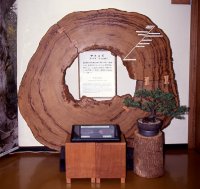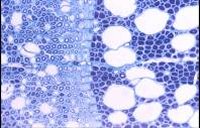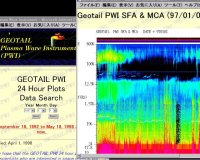
 Department of Collaborative Research Programs Department of Collaborative Research Programs
Overview
Naoki Shinohara, Professor
The department consists of two sections: Sections for Inter-University Collaborative Programs and Sections for International Collaborative Programs. The Department operates as an institution for promoting collaborative research and projects in cooperation with both domestic and foreign research institutions and universities. It also pursues collaborative research with industrial sector and governmental research institutions.
Section for Inter-University Collaborative Programs
“Inter-university collaborative programs” is the heart of the operation of RISH. The section promotes open-door observational and experimental facilities and also provides information and database to the outside researchers. The section also promotes collaborative research projects along the lines with four missions of RISH.
Cooperative Studies Using Collaborative Research Facilities
- Facility for Xylarium data
More than 15000 of xylarium data are made available nation-wide for the various projects.


- Radar and Satellite Observational Databases
For many years we have provide a variety of observational data on space and the atmosphere, including MU radar data and data from the GEOTAIL satellite.

Collaborative Research Projects
This section leads international collaboration based on the JSPS-LIPI Core University Program, international collaborative studies of space environment, and equatorial atmosphere observations. It also initiates new research projects to promote the four missions of RISH.
Section for International Collaborative Programs
RISH operates globally and actively. In addition to the JSPS-LIPI Core University program and the individual collaborative studies we have been conducting, we open our inter-university research facilities, databases, and collaborative research programs to the international research community. We also contribute to scientific development in Asia and the rest of the world.
International Cooperative Studies Using Collaborative Research Facilities
In addition to the EAR observatory in Indonesia, we also open our inter-university collaborative research facilities in Japan to international research community in order to promote research collaborations and academic cooperation.
International Collaborative Research Projects
We are dedicated to the promotion of international collaborative research. From 1999 to the present, the total number of our staff members who have visited foreign research institutes is 518, while 405 scientists visited us from all over the world. In addition, we have signed fourteen Memoranda of Understanding (MOU) and Letter of Agreement (LOA) with foreign institutions. The number of international collaborative researches are as follows;
- International collaboration related to JSPS-LIPI Core University Program: 25 projects
- International collaboration with MOU and LOA counterparts: 7 projects
- Other types of international collaboration: 51 projects
It is becoming more and more important to establish systems and strategies for sustainable production and utilization of tropical forest resources so that a sustainable and recycling-based society can be established. In this context, we have been operating the JSPS-LIPI Core University Program in the Field of Wood Science since 1996 with the aim of establishment of basic science and technology which deal with the lignocellulosic materials, including fast growing trees, low-quality wood, and even forest and agricultural residues.
International Research Conferences and Schools
RISH has hosted 28 international symposia over the last five years. Additionally, since 1990, 8 and 2 symposia were held in Indonesia and China, respectively. Recently in 2003 “International Symposium on Sustainable Utilization of Acacia mangium” was held to discuss sustainable utilization of tropical forest resources.
We also host international schools to educate young scientists. We have hosted “International School on Space-plasma Simulation (ISSS)” three times (1982, 1991, 1997) and “International School on Atmospheric Radar (ISAR)” in 1988.
Visiting Scientists from Foreign Countries
We are proud to report that during the past 18 years (1986-2004), 74 visiting professors and scientists from 17 different countries have visited RISH. We also encourage young scientists to visit. On average, we have more than 5 foreign post-doctoral fellows under JSPS programs, we accept approximately 11 foreign students every year.
|

